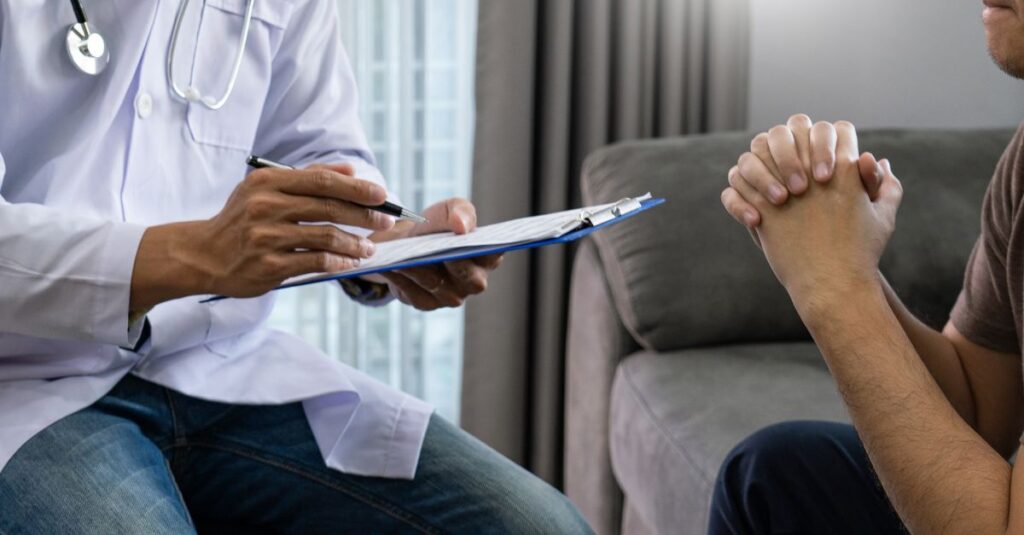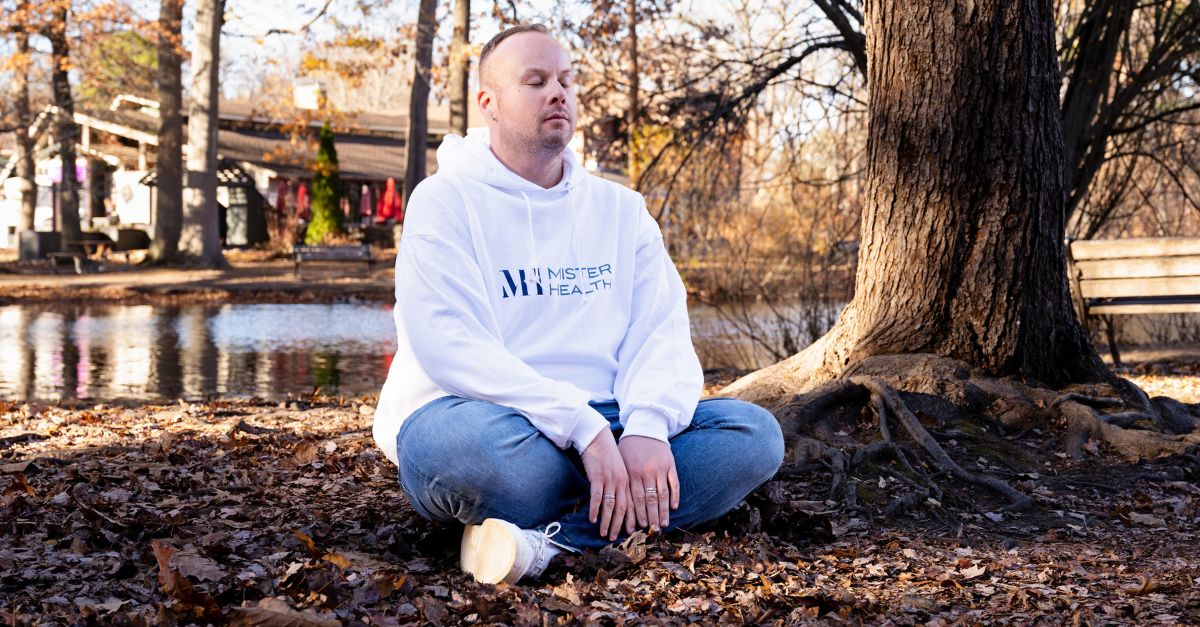Unlocking Sexual Satisfaction: What Every Man Should Know About Erectile Dysfunction
Let’s face it—talking about erectile dysfunction (ED) is uncomfortable for many men. You might be thinking, Is this just part of getting older? Is something wrong with me? Will my partner lose interest? These are valid concerns, but the good news is that ED is not only common but also highly treatable. Whether you’re dealing with occasional difficulties or ongoing issues like premature ejaculation or trouble maintaining an erection, there’s hope.
I specialize in helping men regain confidence and achieve the fulfilling sex life they deserve. Together, we’ll explore the different types of ED, its causes, and practical steps you can take to get back on track. Spoiler: This journey isn’t just about fixing a “mechanical issue.” It’s about rediscovering intimacy, connection, and joy.
Causes of Erectile Dysfunction
Erectile dysfunction comes in different forms, and not all of them are about “getting it up.” For some men, ED shows up as difficulty achieving or sustaining an erection. For others, it’s premature ejaculation or reduced sexual satisfaction. ED can be linked to physical causes, psychological issues, or a mix of both.
Here are a few causes of ED:
- Physical Factors: Health conditions like atherosclerosis, high cholesterol, high blood pressure, diabetes, or low testosterone can interfere with blood flow to the blood vessels in the penis or hormone levels. Even lifestyle factors like smoking, poor diet, or lack of exercise can contribute.
- Psychological Causes: Stress, anxiety, depression, and even performance pressure can hijack your sexual function. If you’ve ever found yourself “in your head” during sex, you know how distracting—and debilitating—those thoughts can be.
- Medications and Medical Treatments: Certain antidepressants, blood pressure meds, or treatments for conditions like prostate cancer can have side effects that make it harder to perform.
- Age and Life Stages: While ED is more common as you age, it’s not an inevitable part of getting older. Many men in their 30s and 40s experience ED, often tied to lifestyle, stress, or health conditions.
Let’s Talk About the Different Types of ED
Not all ED is created equal. Here’s a breakdown to help you understand what you might be dealing with:
- Trouble Achieving or Maintaining an Erection: This is the classic form of ED, often linked to physical issues like poor circulation or low testosterone.
- Premature Ejaculation: This can stem from anxiety, heightened sensitivity, or even years of rushing through sexual experiences (e.g., during masturbation).
- Loss of Sexual Desire: Sometimes, ED is tied to reduced libido, which can stem from mental health struggles, hormonal imbalances, or relationship challenges.
Whatever the type, remember this: ED doesn’t define you. It’s a signal that something—whether physical, emotional, or relational—needs attention.
Breaking the Cycle of Worry

One of the most insidious parts of ED is the mental toll it takes. You start overthinking, planning, or worrying during sex instead of enjoying it. Sound familiar? That’s exactly why I created the Mister Method, a step-by-step guide to help men get out of their heads and back into their bodies.
Here’s a sneak peek at the Mister Method:
- Mindfulness: Before engaging in sex, check in with your emotions. Are you feeling stressed, anxious, or distracted? Take a moment to breathe and focus on the present.
- Intention: Stop the mental spiral. Instead of worrying about whether you’ll perform “perfectly,” focus on the fact that your partner is choosing to be with you—right now.
- Sensation: Slow down. Tune in to physical sensations and enjoy the process instead of rushing to the finish line.
- Embodiment: Engage all your senses—what you see, hear, touch, taste, and smell. This deepens intimacy and enhances pleasure.
- Reflection: After intimacy, take a moment to appreciate the experience. What felt good? What made you feel connected? This is also a chance to express gratitude to your partner (or yourself!).
Simple Steps to Start Improving Right Now
If you’re ready to start addressing ED, here are some practical tips to help you feel more in control:
1. Make Small Lifestyle Changes
It’s no secret that healthy habits lead to better sexual health. Try incorporating regular physical activity, improving your diet (cutting down on sugar and processed foods), and limiting alcohol or smoking. These small changes can make a big difference in blood flow, sexual performance, and overall energy.
2. Prioritize Mental Health
Stress, anxiety, and depression are huge contributors to ED and men’s health overall. Consider mindfulness practices like meditation or yoga, or talk to a therapist about what’s weighing on you. Remember, your brain is just as important as your body when it comes to sex.
Remember, many mental health medications can impact sexual performance, but you don’t have to live with that side effect. Other medication options may work better for you. Talk to your prescriber and keep at it until you find an option that works for your mental health and sexual health.
3. Open Up to Your Partner
Good sex starts with good communication. If you’re struggling, let your partner know what’s going on. Chances are, they’ve already noticed something is up (or not up). Being vulnerable can bring you closer and reduce performance pressure.
4. Explore Medical Options
For some men, erection problems are tied to underlying health conditions that require medical treatment. Medications like sildenafil (Viagra) or tadalafil (Cialis) can be effective for many men. But don’t self-diagnose—talk to a doctor who can recommend the best treatment for you.
When Should You See a Doctor?

If ED is happening regularly or feels like it’s taking over your sex life, it’s time to see a professional. ED can sometimes signal larger health issues, like cardiovascular disease, diabetes, or even early signs of prostate cancer.
If you’re seeking medical care for erectile dysfunction treatment, pay attention to more than just the physical symptoms. I recommend a combined approach of physical and mental health care.
I offer a personalized approach to diagnosing and treating ED, ensuring psychological factors are addressed, and letting patients know when it’s time to involve a medical doctor to explore possible health problems.
Tips for Keeping Sex Fun and Intimate
While you’re exploring ed treatment options, you’ll probably want to continue enjoying solo sex or sex with your partner. The good news is sex isn’t just about performance—it’s about connection, exploration, and fun. Here are some ideas to rekindle intimacy and reduce performance anxiety:
- Experiment Together: Try something new, whether it’s a different position, incorporating sensory play, or even mutual masturbation.
- Focus on Foreplay: We often think of sexual intercourse as the only way to have sex. Slow down and enjoy sexual activity that doesn’t require penetration. Touching, kissing, and exploring each other’s bodies without the pressure to “perform” might just help you get out of your head and into the moment.
- Lean Into Pleasure: Forget about the “goal” of orgasm and focus on enjoying the moment. What feels good? What makes you feel connected?
- Practice the Mister Method: Seriously, it works. The more you practice mindfulness during intimacy, the easier it becomes to stay present and let go of anxiety.
Real Talk: ED Isn’t the End
If you’ve been struggling with ED, you’re not alone—and you don’t have to figure it out alone, either. The right combination of self-care, open communication, and professional guidance can help you take back control. And while it’s tempting to think of ED as a “problem to fix,” it’s also an opportunity. It’s a chance to better understand your body, your emotions, and your relationships.
Ready to Take the Next Step?
I have helped countless men overcome ED and reconnect with their partners—and themselves. Whether it’s through one-on-one consultations, my signature Mister Method, or customized treatment plans, my approach is always compassionate, effective, and tailored to you.
Don’t wait. Take the first step toward a more satisfying sex life by booking a consultation today.



